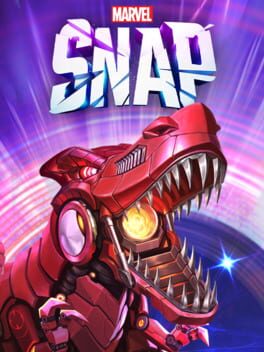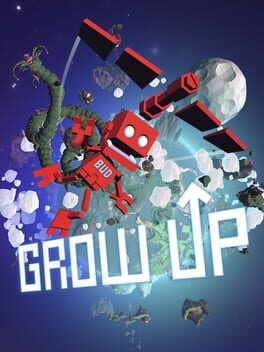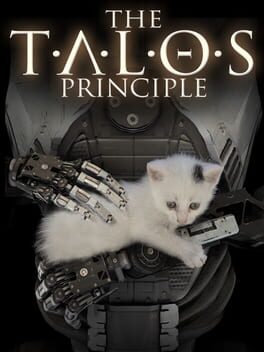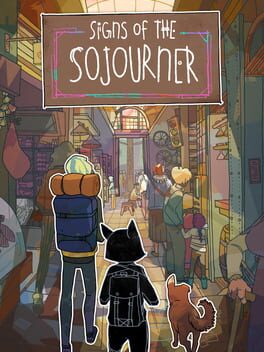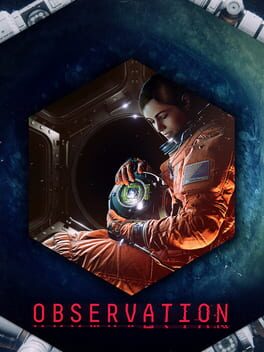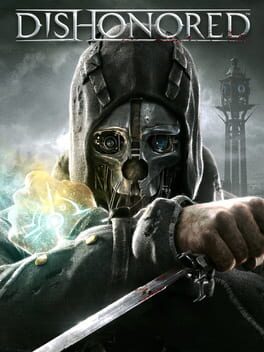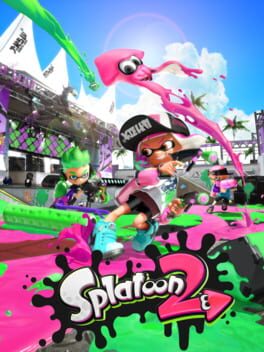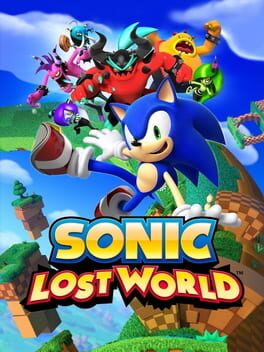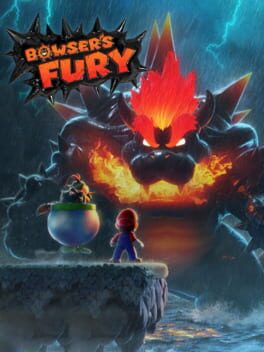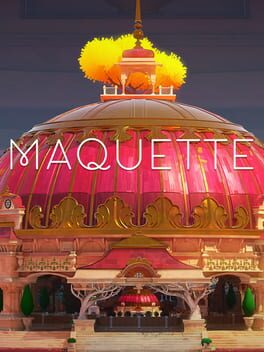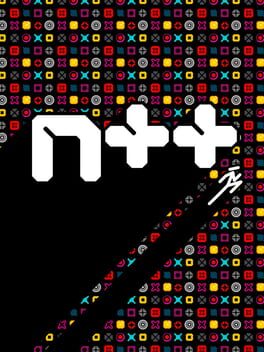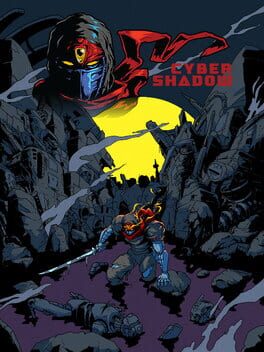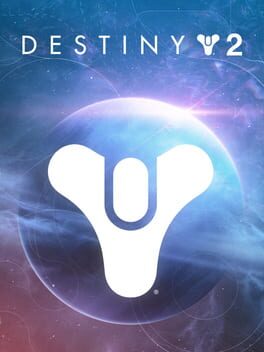FBracht
2022
Marvel Snap is a bit like Destiny 2, Apex Legends, and many others in the “game as a service” category: a great game you probably shouldn’t play.
There is no denying that Marvel Snap is astoundingly great at being a quick and flashy 2-player card battler: card effects are superbly designed, so that almost every cards feels powerful and great to play; decks are exactly 12 cards, so it’s easy to deckbuild, experiment, and try many different strategies; and, at exactly 6 turns, each game is snappy I got used to firing up the matchmaking every time I have to go downstairs to grab a food delivery — and I live in the second story on my building. Win or lose, you’ll play your cards, watch their flashy effects, and have your dopamine hit. It really does feel great.
Not to mention one of the best parts of the design, the titular snapping mechanic: with one tap, you can stake your progression with a “double or nothing” gamble. No matter if you’re really confident or just bluffing, the other player either needs to call it or concede defeat. This creates tension like a motherfucker.
So let me get this straight, you’re thinking. Snap looks stunning, is polished to a shine, and feels genuinely great to play. What’s the problem?
The price.
By 2023, it’s basically a cliché to say free-to-play games are the most expensive in the market. Everyone knows that. Snap is no different. You will download the game for free, sure, but you will pay — if not with money, than with the bad feeling of playing a lesser game than everyone else, and having to grind more to be less competitive. You’ll always be behind on the new cards, and every game you lose will remind you this problema can be solved with your credit card.
Just get it, you’ll think. It’s just the price of an indie game per month to keep on top of the Season Passes, you’ll think. It won’t bankrupt me, you’ll think. I don’t even have time to play a new indie game every month to completion. This game brings me fun consistently. I like Marvel heroes! Pretend it’s a subscription! You’ll think all of these things and others to justify continuously spending time on intangible items that would have been unlockable through gameplay if this was a good old regular paid game as god intended.
And then one day you’ll write a review on Marvel Snap on Letterboxd and, as you write, you’ll realize what an idiot you’ve been to think this was okay. And you will decide, right then and there, while writing the penultimate paragraph, to just uninstall Snap and get a new indie game instead.
I think I’ll start with Pizza Tower. Yeah. :) I hear great things, and it’s even cheaper than a Snap season pass.
Now that feels great.
…
I once heard that the act of writing is in itself the act of thinking, just a bit slower and more methodical. I can now state with confidence: that tracks.
There is no denying that Marvel Snap is astoundingly great at being a quick and flashy 2-player card battler: card effects are superbly designed, so that almost every cards feels powerful and great to play; decks are exactly 12 cards, so it’s easy to deckbuild, experiment, and try many different strategies; and, at exactly 6 turns, each game is snappy I got used to firing up the matchmaking every time I have to go downstairs to grab a food delivery — and I live in the second story on my building. Win or lose, you’ll play your cards, watch their flashy effects, and have your dopamine hit. It really does feel great.
Not to mention one of the best parts of the design, the titular snapping mechanic: with one tap, you can stake your progression with a “double or nothing” gamble. No matter if you’re really confident or just bluffing, the other player either needs to call it or concede defeat. This creates tension like a motherfucker.
So let me get this straight, you’re thinking. Snap looks stunning, is polished to a shine, and feels genuinely great to play. What’s the problem?
The price.
By 2023, it’s basically a cliché to say free-to-play games are the most expensive in the market. Everyone knows that. Snap is no different. You will download the game for free, sure, but you will pay — if not with money, than with the bad feeling of playing a lesser game than everyone else, and having to grind more to be less competitive. You’ll always be behind on the new cards, and every game you lose will remind you this problema can be solved with your credit card.
Just get it, you’ll think. It’s just the price of an indie game per month to keep on top of the Season Passes, you’ll think. It won’t bankrupt me, you’ll think. I don’t even have time to play a new indie game every month to completion. This game brings me fun consistently. I like Marvel heroes! Pretend it’s a subscription! You’ll think all of these things and others to justify continuously spending time on intangible items that would have been unlockable through gameplay if this was a good old regular paid game as god intended.
And then one day you’ll write a review on Marvel Snap on Letterboxd and, as you write, you’ll realize what an idiot you’ve been to think this was okay. And you will decide, right then and there, while writing the penultimate paragraph, to just uninstall Snap and get a new indie game instead.
I think I’ll start with Pizza Tower. Yeah. :) I hear great things, and it’s even cheaper than a Snap season pass.
Now that feels great.
…
I once heard that the act of writing is in itself the act of thinking, just a bit slower and more methodical. I can now state with confidence: that tracks.
2016
2022
2014
This game is an incredibly good idea, and I encourage everyone to try it on the merits of that idea alone: the entire game is you talking to people, however your conversations are abstracted as a card game. Cards have symbols that represent the tone of your speech, and you have to match the tone the other character is going for. If someone plays cards with a circle (meaning emphatic and observant), and you try to play a triangle (diplomatic, logical), the conversation doesn't develop in any useful way. And since you're a traveling salesman of sorts, getting on the good side of people is how you progress.
So that's awesome.
And I wouldn't even say the game is not awesome. It is. It's very charming, the soundtrack is incredibly soothing, and it does interesting things with its mechanics. For example, some cards have unique conversational properties such as allowing you to redraw your hand ("reconsider"), matching whatever symbols were in the card your conversation partner has just played ("accommodate"), or even to play the card retroactively in a previous point of the conversation ("clarify"). This is just the tip of the mechanical iceberg here, and I am not kidding when I say the game is remarkably industrious with how it unfolds.
However, some of the things it does, regardless of how mechanically creative, just rub me the wrong way.
For example: after every conversation, the game forces you to change one of the cards in your incredibly small 10-card deck for one that was used in the conversation you just had. At the start, these feel like upgrades to how much you can express yourself. And it makes sense: the more you talk to people, the better you get at talking to people — especially if they're the kind of people you just talked to.
However, as you go along, the size of your deck doesn't increase, but the number of different symbols you need to effectively juggle in order to being able to talk to people in new places increases a lot. At the start everyone just used the same 2 or 3 symbols, I could be sure to almost always have the right cards to ensure effective communication with all of them. But later on, there's twice as many symbols, but my deck still only has 10 cards, which means talking to everyone is harder — including those people at the start that used the first 2 symbols in the game. It doesn't make sense that the more I talk to people, the worse I got at talking to people, especially to the people I was already good at talking to!
This only happens because the game mandates that I substitute one of my cards for one used by the person I just had a failed conversation with.
Anyhoo. This relatively small thing was enough for me to drop the game. I'm not sure this means this "flaw" is that heavy (and I'm sure some people wouldn't even consider it a flaw) or that I'm just eager to drop games since I've been juggling so many at the same time, but the truth is it happened.
Creative, nice, and soothing as it is, Signs of the Sojourner failed at communicating with me.
So that's awesome.
And I wouldn't even say the game is not awesome. It is. It's very charming, the soundtrack is incredibly soothing, and it does interesting things with its mechanics. For example, some cards have unique conversational properties such as allowing you to redraw your hand ("reconsider"), matching whatever symbols were in the card your conversation partner has just played ("accommodate"), or even to play the card retroactively in a previous point of the conversation ("clarify"). This is just the tip of the mechanical iceberg here, and I am not kidding when I say the game is remarkably industrious with how it unfolds.
However, some of the things it does, regardless of how mechanically creative, just rub me the wrong way.
For example: after every conversation, the game forces you to change one of the cards in your incredibly small 10-card deck for one that was used in the conversation you just had. At the start, these feel like upgrades to how much you can express yourself. And it makes sense: the more you talk to people, the better you get at talking to people — especially if they're the kind of people you just talked to.
However, as you go along, the size of your deck doesn't increase, but the number of different symbols you need to effectively juggle in order to being able to talk to people in new places increases a lot. At the start everyone just used the same 2 or 3 symbols, I could be sure to almost always have the right cards to ensure effective communication with all of them. But later on, there's twice as many symbols, but my deck still only has 10 cards, which means talking to everyone is harder — including those people at the start that used the first 2 symbols in the game. It doesn't make sense that the more I talk to people, the worse I got at talking to people, especially to the people I was already good at talking to!
This only happens because the game mandates that I substitute one of my cards for one used by the person I just had a failed conversation with.
Anyhoo. This relatively small thing was enough for me to drop the game. I'm not sure this means this "flaw" is that heavy (and I'm sure some people wouldn't even consider it a flaw) or that I'm just eager to drop games since I've been juggling so many at the same time, but the truth is it happened.
Creative, nice, and soothing as it is, Signs of the Sojourner failed at communicating with me.
2019
2012
Dishonored is much more cool than it is actually good.
Not to say that it isn't a good game, but I don't think it reaches greatness. It seems like Arkane Studios found a winning formula here, but it still needed to be tweaked. Dishonored 2 fares much better in every regard — at least the ones that matter to me. It's almost like comparing Half Life to Half Life 2.
Not to say that it isn't a good game, but I don't think it reaches greatness. It seems like Arkane Studios found a winning formula here, but it still needed to be tweaked. Dishonored 2 fares much better in every regard — at least the ones that matter to me. It's almost like comparing Half Life to Half Life 2.
2017
This game is flawless. Some people criticize some things about it, but I honestly disagree with every single major criticism I ever saw someone make, from limited Salmon Run availability to lack of voice chat. The only criticism that used to be somewhat serious enough to warrant one fewer star in my review was the lack of a proper single-player campaign, but then they released the Octo Expansion and the game is perfect. Perfect!
2013
Even more of a wasted potential than the average Sonic game.
If you look at me and say the Sonic game where he has a sword is garbage, or the one where the main gimmick is you play with your own OC, I'm gonna be like "well, what did you expect??"
But this one looks so cool! The stages are so interesting, and beautiful! The potential is galactic! And yet, is pure garbage. SEGA has no idea how Sonic is even supposed to control.
You know how some games are labelled "precision platformers"? This is the opposite, an imprecision platformer. The game designers didn't know how to make Sonic gameplay feel good at slow speeds, so they made all the slow parts almost unplayable. This way, people will forget any notion of exploration and just kinda "press forward to win". They made you want to go fast by making you REALLY don't want to go slow. It's a shame, because otherwise the game is beautiful, and had almost as much potential as its clear inspiration, Mario Galaxy.
If you look at me and say the Sonic game where he has a sword is garbage, or the one where the main gimmick is you play with your own OC, I'm gonna be like "well, what did you expect??"
But this one looks so cool! The stages are so interesting, and beautiful! The potential is galactic! And yet, is pure garbage. SEGA has no idea how Sonic is even supposed to control.
You know how some games are labelled "precision platformers"? This is the opposite, an imprecision platformer. The game designers didn't know how to make Sonic gameplay feel good at slow speeds, so they made all the slow parts almost unplayable. This way, people will forget any notion of exploration and just kinda "press forward to win". They made you want to go fast by making you REALLY don't want to go slow. It's a shame, because otherwise the game is beautiful, and had almost as much potential as its clear inspiration, Mario Galaxy.
2018
2021
💭 "As a game in itself, Bowser’s Fury is competent, creative, and fun, but I feel the need to prepend each of these adjectives with the word 'moderately'."
💭 "It just reeks of lack of confidence in its own ideas, like if Breath of the Wild included a very prominent Ocarina and Hookshot: 'we're trying new things, but please don't be alarmed! We are still the same old thing you know and love, see? Play Song of Saria!'"
💭 "People who say this game points at the post-Odyssey future of Mario games are, I think, shortsighted."
💭 "Why did Nintendo feel like they needed to bundle this with Super Mario 3D World? Again, it speaks of insecurity. Did they feel like 3D World wasn't appealing enough as a product in itself? Did they feel like they could not "cheapen the brand" by selling Bowser's Fury directly for like 15 bucks?"
Full review: https://fabiobracht.medium.com/bowsers-fury-mario-s-latest-is-not-mario-s-greatest-e76049a3d609
💭 "It just reeks of lack of confidence in its own ideas, like if Breath of the Wild included a very prominent Ocarina and Hookshot: 'we're trying new things, but please don't be alarmed! We are still the same old thing you know and love, see? Play Song of Saria!'"
💭 "People who say this game points at the post-Odyssey future of Mario games are, I think, shortsighted."
💭 "Why did Nintendo feel like they needed to bundle this with Super Mario 3D World? Again, it speaks of insecurity. Did they feel like 3D World wasn't appealing enough as a product in itself? Did they feel like they could not "cheapen the brand" by selling Bowser's Fury directly for like 15 bucks?"
Full review: https://fabiobracht.medium.com/bowsers-fury-mario-s-latest-is-not-mario-s-greatest-e76049a3d609
2021
This review contains spoilers
"I, too, became disappointed in the game. And so, just as the couple explores their relationship, I’m taken to explore some relationships here as well."
"This concept is so cool, in fact, that the game itself seems like it’s always playing catch-up with it, frantically trying figure out how to use it in ways that are interesting both mechanically and allegorically. Not always with great results."
Full review: https://fabiobracht.medium.com/maquette-a-game-and-a-review-about-exploring-relationships-e6ff0e8e621a
"This concept is so cool, in fact, that the game itself seems like it’s always playing catch-up with it, frantically trying figure out how to use it in ways that are interesting both mechanically and allegorically. Not always with great results."
Full review: https://fabiobracht.medium.com/maquette-a-game-and-a-review-about-exploring-relationships-e6ff0e8e621a
2015
This game is Pac-Man as a platformer, and I mean this in the grandest of all possible senses.
N++'s timelessness is unmatched by any other game in its genre. If you think Celeste is "precise", Super Meat Boy is "hard", Super Mario is "expressive", you're not wrong — but, still, N++ distills all of these qualities in the purest, most refined experience of jumping and moving in a 2D space.
Unbound by any concern whatsoever with things like narrative, worldbuilding, or thematic cohesion, N++ is just lines. Each of its checks wikipedia four thousand three hundred and forty stages (!!) is made up of a few perfectly straight lines, a mere dozen or so types of enemies and traps, and a number of square "coins" you may pick up as you traverse the level if you have the gall to go for any score higher than "I was able to clear this level somehow".
The only two things that prop up this ridiculous game are pure, unadulterated level design intelligence, and a physics engine that would make Einstein himself soil his trousers. Every single input you give to this game works double or triple duty. You know how in Super Smash Bros you can control the height of your jump depending on how long you press the button, and you can also do a "short hop" by lightly tapping it with a level of subtlety that's frankly unbecoming of the fighting genre? That is good gameplay. Now, imagine that, but better. Bonkers better. Infinite levels of either floatiness or short-hoppy-ness at the tip of your finger, dictated only by your eagerness and/or patience to let go of the A button.
If the Ninja you control in N++ could leave traces of paint in the screen, we would most certainly have N++ artists, such is the expressiveness and gracefulness of this character, in these levels, with these physics, in this game.
N++'s timelessness is unmatched by any other game in its genre. If you think Celeste is "precise", Super Meat Boy is "hard", Super Mario is "expressive", you're not wrong — but, still, N++ distills all of these qualities in the purest, most refined experience of jumping and moving in a 2D space.
Unbound by any concern whatsoever with things like narrative, worldbuilding, or thematic cohesion, N++ is just lines. Each of its checks wikipedia four thousand three hundred and forty stages (!!) is made up of a few perfectly straight lines, a mere dozen or so types of enemies and traps, and a number of square "coins" you may pick up as you traverse the level if you have the gall to go for any score higher than "I was able to clear this level somehow".
The only two things that prop up this ridiculous game are pure, unadulterated level design intelligence, and a physics engine that would make Einstein himself soil his trousers. Every single input you give to this game works double or triple duty. You know how in Super Smash Bros you can control the height of your jump depending on how long you press the button, and you can also do a "short hop" by lightly tapping it with a level of subtlety that's frankly unbecoming of the fighting genre? That is good gameplay. Now, imagine that, but better. Bonkers better. Infinite levels of either floatiness or short-hoppy-ness at the tip of your finger, dictated only by your eagerness and/or patience to let go of the A button.
If the Ninja you control in N++ could leave traces of paint in the screen, we would most certainly have N++ artists, such is the expressiveness and gracefulness of this character, in these levels, with these physics, in this game.
2021
2017
One of the best and worst games I ever played. Best because it's completely crunchy, the gunplay feels divine and the world design is out of this world. Raids are an experience to be had, unmatched in anything else I ever played. And even as a timewaster, it's phenomenal: log in, do some quests, log out.
However, the bad part is pretty terrible: unless you have most of your days free, it's entirely impossible to play Destiny 2 "properly" and have other games on the side. You just can't. This game eats your free time, and FOMOs you into playing it every day. Pretty soon it starts feeling like work, and the magic wears off.
Fun games aren't supposed to feel like this.
However, the bad part is pretty terrible: unless you have most of your days free, it's entirely impossible to play Destiny 2 "properly" and have other games on the side. You just can't. This game eats your free time, and FOMOs you into playing it every day. Pretty soon it starts feeling like work, and the magic wears off.
Fun games aren't supposed to feel like this.
